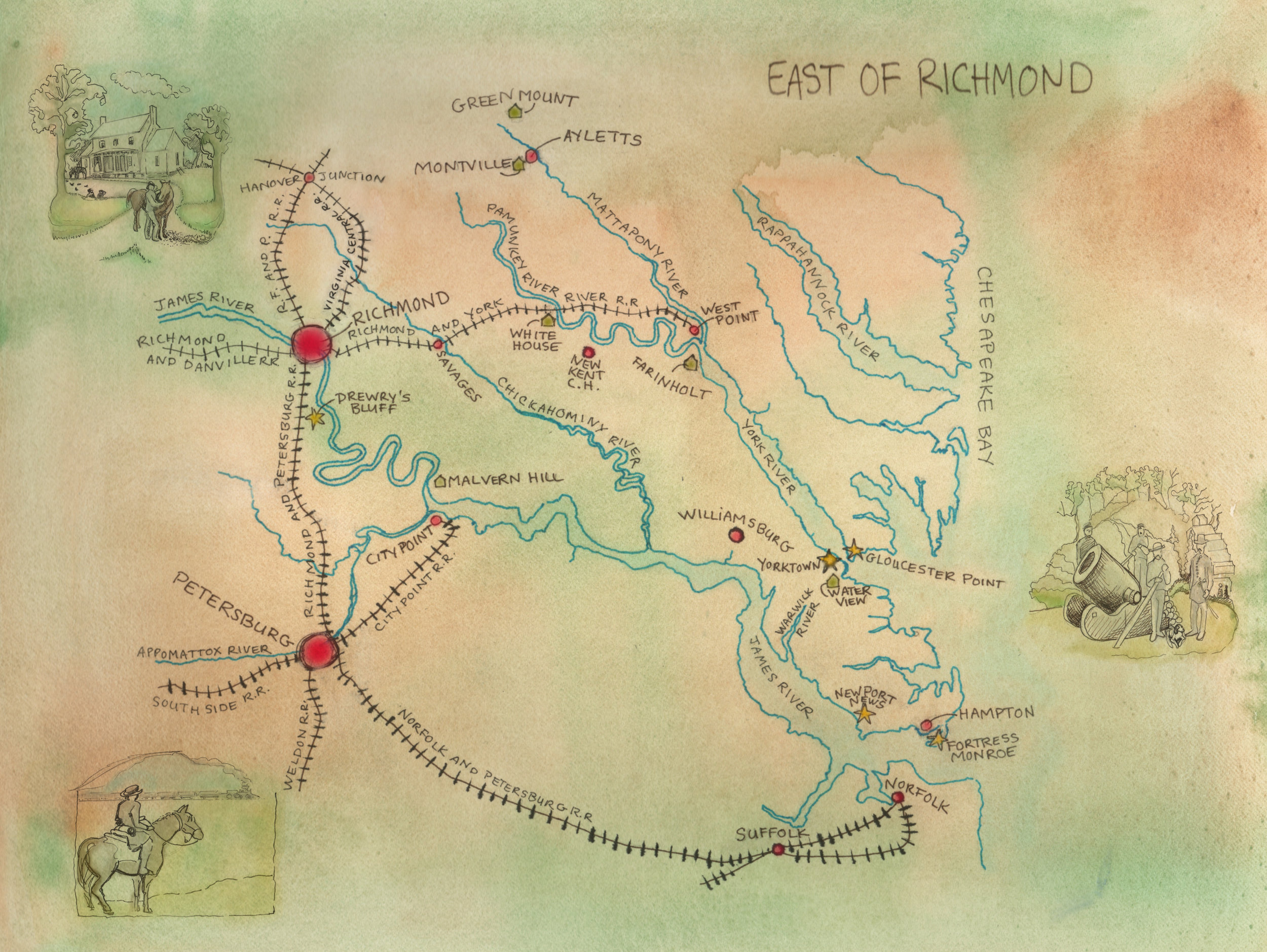
Written by Terry Jones
Enduring War is a history of the Civil War as seen through the eyes of a select group of Virginia families. It is a story of a time when the lines between the war front and the home front grew blurred; a story of men and women, black and white, slave and free; a story of the collapse of a society and the dawning of a new era. It is a story of larger-than-life characters, of unimaginable bravery, of utter devastation — and it is all true.
The Families
“My dearest wife, I am well and hope you are in enjoyment of the same great blessing...I am fully willing to go anywhere I am sent, and it is your duty to bear it, for my sake and your country’s.”
“I have heard nothing from you or any of my family since the fall of Richmond. I don’t know where any of you are or how any of you are getting along...who is with you? Are you suffering for anything?”

Enduring War tells the story of the Civil War as experienced by five Virginia families: the Mortons, the Farinholts, the Ayletts, the Martins and the Fleets.
The reader follows a select group of young men from these families, many of whom served together under the colors of the 53rd Virginia regiment. Every man saw combat. Each suffered grievous wounds. Some joined Robert E. Lee on his invasion of the North. Some led the mass of men up Cemetery Ridge at Gettysburg in the assault known to history as Pickett's Charge. One staged a prison break from a Union internment camp and became, for a time, one of the most celebrated men in the Confederacy. Not all survived the war.
As these men fought, their wives, mothers and sisters struggled to keep children alive and households running as an entire economy teetered and then collapsed. As Union forces raided homesteads and carried off what they chose. As crops failed, store shelves emptied, and starvation set in.
Enduring War follows the lives of these men and women -- and of the men and women they owned. Men and women without last names; men and women whose skin color sentenced them to a life of servitude.
This is a story of the end of a way of living, told by those who lived it.
The battlefields
“We passed a little one-room house in the woods that the enemy had used to amputate legs, arms, etc. and there was a pile of legs, arms, hands, feet, etc. One of the boys remarked that ‘they looked like a pile of tobacco stalks in front of a barn door.’”

“As the brigade neared the wall, General Armistead shouted to Rawley Martin: ‘We cannot stay here...’ Martin answered: ‘Then we’ll go forward.’”
Enduring War brings the reader to the front lines and into the trenches of battles both famous and forgotten.
From the killing fields of Antietam and Gettysburg to the siege lines of Richmond, from the slaughter on the slopes of Malvern Hill to the ferocious pursuit of a still-dangerous Robert E. Lee across the burned wastes of the Virginia countryside -- the men of the 53rd Virginia were there for it all.
Battles and Events Featuring the Characters of Enduring War
*Lee's Invasion of the North
*Gettysburg and Lee's Retreat
*The Evacuation and Fall of Richmond
*The Pursuit of Lee's Army
*Lee's Surrender
*1st Bull Run (1st Manassas)
*The Siege of Richmond
*Malvern Hill and the Union Retreat
*Antietam
*2nd Bull Run (2nd Manassas)
The Art of History
As men fought, bled and died on battlefields that could be thousands of miles from home or within sight of their birthplaces, artists across America were moved to depict their ruptured nation in ink, in paint and in song.
Draftsmen like Winslow Homer and Frederic Church; authors like Nathaniel Hawthorne, Herman Melville and Walt Whitman, composers of sheet music that sold in the millions and painters whose compositions stirred passions both north and south of the Potomac -- all are woven throughout Enduring War, offering an immersive historical experience to the reader and deepening the extensive original research that drives the story.
“As for Lincoln’s effort to conquer us...queer; we only want to separate from them, and they put such an inordinate value on us. They are willing to risk all, life and limb and all their money, to keep us; they love us so.”



